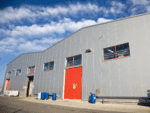
Whether the company is an industry, restaurant, office building, hotel, factory, or store, optimizing water usage can lead to significant cost savings and a more sustainable operation, consequently improving production, time efficiency, and even safety in some cases.
Effective strategies can reduce water bills by up to 30%, and it is an important step to stop wasting money on what can be avoided to save and use in essential internal enhancements, such as maintenance and investments in new machines, for example. Especially if we consider how water rates increased in some Canadian regions.
In Oakville (Ontario), for example, commercial water bill rates increased by 4.3%. On January 1, 2024, Toronto City Council approved a 3% interim rate increase for all water consumers.
In Alberta, the EPCOR Water Report, with comparative wastewater bill information based on the other utilities’ wastewater treatment, wastewater collection, and stormwater rates as of 2024, escalated by the factor (inflation) of 2.5% to determine the 2025 rate.
What could be causing higher rates?
- Water rates can be hiked by municipal suppliers – when this happens, not only companies, but also residents experience higher utility bills.
- Outdated plumbing fixtures and malfunctioning wastewater equipment can result in higher costs to the business.
- Unmonitored leaks or irrigation systems. To save, companies often choose not to invest in monitoring systems. However, if there are underground leaks, the business can waste water without even knowing it.
- Overuse of water in daily operations, especially in hospitality, manufacturing, or food services, which use more water during their daily routine.
- No water efficiency policy, smart tracking, or usage tracking system in place.
How to save on commercial water bills
Conduct a Commercial Water Audit
We talked about the importance and all that is needed to know regarding water audit in this article. But in summary, this would be the first step to better understand the company’s needs, its scenario, the equipment requirements, and get professional analysis on how to improve the business.
In summary, a water audit analyzes your water bills for trends or spikes, identifies high-consumption areas, locates leaks or inefficiencies, and benchmarks against industry standards. Moreover, it’s an “everything water-related” work, straight-focused on solving the company’s gaps and bringing new possibilities for water efficiency.
To make this happen, the company can hire a professional water audit service. The insights gained will guide all future water-saving decisions. In Canada, the main ones that conduct water audits (with nationwide reach) are:
- BES Canada
- Water Conservation Company
- Aureus Solutions
- AFRY Canada
- Ecolab (Nalco Water)
- GHD Group
- RWDI
High-Efficiency Fixtures
Older toilets, faucets, and showerheads use significantly more water than modern alternatives. Replacing them with WaterSense-labelled products could cut water usage by 20–30% or more, according to the Delta website.
In summary, the WaterSense low-flow toilets and urinals (some use just 0.5 gallons per flush) are touchless faucets with aerators in restrooms, have efficient pre-rinse spray valves for commercial kitchens, and sensor-activated shut-off systems. It’s an initial investment that, checking the saving possibility (by 20–30%), pays for itself through reduced water bills and maintenance costs.
The solution doesn’t depend on the employed behaviour changes or awareness, as it solves water issues by itself, through the equipment mechanism. In a busy industry or business, the cumulative savings can be several cubic metres of water annually, and no one will notice the slight change in flow.
In Canada, the companies that sell WaterSense® Labelled Products are:
Leaks and Runoffs Monitoring
Leaks can be silent money-drainers, as, in a few cases, it can be even challenging to check and find where they are. A dripping faucet or leaking toilet can waste thousands of gallons per year, depending on the company niche, size, number of employees, and type of business.
Toilet flappers, leaky irrigation lines, HVAC systems, poorly sealed pipes or valves… Where there is water, there is a chance of having an issue. From the bathroom area to the manufacturer’s one. Therefore, implementing a routine maintenance plan to inspect and repair water systems regularly is not only needed but a behaviour that can save future and bigger (pricey) damages.
Besides a maintenance routine, smart water leak detection can be another option to help with the early detection of water leaks as soon as they happen, consequently avoiding business interruptions, minimizing unnecessary repairs (infiltration), and reducing health hazards from mould growth, for example. For larger buildings, the system can provide real-time alerts about unusual consumption or potential leaks.
But more than smart water leaks, there are options on the market to avoid water waste in general, such as:
- Water flow and leak analysis sensors, which stop water damage before it starts by detecting leaks instantly;
- Remote water shut-off valves, which reduce the risk of water damage with smart sensors that let the company shut off water remotely, automatically, or manually;
- Water leak detectors, which stop water damage before it starts by instantly detecting leaks;
- And devices like the meter efficiency valve (MEV), which can help businesses save from 5 to 15% on average on their water bills. The tool reduces water bills by compressing air pockets in water lines. This makes water costs more accurate and prevents consumers from paying for excessive air pockets in water lines, for example.
In Canada, the main companies that offer these products (with nationwide reach) are:
Optimize Landscaping and Irrigation
If the business has a lawn, garden, or other outdoor space, the irrigation system might be a hidden source of high water bills. When we talk about efficient irrigation techniques, we want to clarify that it is not only related to preserving water but also to ensuring the health of landscapes. It is about irrigating the right amount to avoid waste.
Large-scale commercial landscaping and sustainable practices can make a significant difference in conserving water while keeping greenery vibrant, as switching to smart irrigation controllers that adjust based on weather and soil moisture (a practical solution for small, medium, and large companies), replacing grass with drought-resistant landscaping (xeriscaping), watering during early morning or evening to reduce evaporation (a simple step that can bring relevant savings), and repairing broken sprinkler heads.
These changes not only lower your water usage but also demonstrate environmental responsibility to clients and the community, and applying some of these solutions is important to find knowledge companies on Landscaping and irrigation system possibilities.
In Canada, the main companies that offer these services are:
National Reach
ON
QC
AB
Reuse and Recycle Water When Possible
When you are not an expert, it can be challenging to find opportunities, and that is why we have said more than once about the importance of water audits. A professional view sees out of the box and in a strategic way, finding opportunities to reuse greywater, for example, non-potable wastewater from sinks, dishwashers, etc., for landscaping or other non-critical uses.
There are plenty of options on the water recycling side, and the decision will be made according to the company’s goals, structure, and possibilities. The main ones include rainwater harvesting for irrigation or cooling towers, condensate recovery from air conditioning systems, and cooling tower water treatment to reuse water longer before disposal.
The data shows that it is an effective strategy. Recycled greywater from showers and bathtubs can be used for flushing toilets in most European and Australian jurisdictions and in United States jurisdictions that have adopted the International Plumbing Code. The system could provide an estimated 30% reduction in water use for the average household.
While these systems require more upfront investment, they often come with rebates or tax incentives for businesses that implement sustainable practices, and we will talk about it soon.
Before, here are the Canadian Companies that work with water reuse and recycling:
Educate Employees on Water-Saving Habits
To boost water conservation and improve everyone’s behaviour on saving, understanding the business consumption is the main step. Water audits, as we said before, help identify areas in need and suggest customized strategies on behavioural change – the cheapest ways to reduce water consumption.
Simple practices can add up to major savings when adopted organization-wide, such as encouraging employees to report leaks, shutting off water to unused areas, creating signage in restrooms and kitchens reminding staff to conserve water, training cleaning and kitchen staff to use water efficiently, and sharing monthly water usage stats with everyone to promote accountability.
The creation of water-saving protocols also helps the company reach sustainability goals. Today, sustainable initiatives show the business values and build credibility in the market.
Rebates and Local Incentives
Depending on the province, local governments can offer rebates for water-efficient appliances, fixtures, and irrigation systems. Find out what is available in the business area:
- In Canada – Clean Water and Wastewater Fund
The program targets projects that will contribute to the rehabilitation of both water treatment and distribution infrastructure, existing wastewater, stormwater treatment systems, and more. Eligible recipients include provinces/territories, municipalities, or entities that provide water or wastewater services as designated by the provinces and territories/municipalities. On the governmental website is possible to check provincial and territorial contact information.
- In Ontario – Industrial Water Rate Program
The Industrial Water Rate Program offers a discounted water rate to manufacturers in Toronto to help support economic growth and encourage water conservation (also called the Block 2 water rate). The Program is open to manufacturers that use more than 5,000 cubic meters annually (m3/yr), fall within the industrial property tax class, are in full compliance with the City’s Sewers By-law, and submit a comprehensive water conservation plan to the satisfaction of the General Manager, Toronto Water.
- In Saskatchewan – Farm and Ranch Water Infrastructure Program
The Farm and Ranch Water Infrastructure Program (FRWIP) provides rebates to develop secure and sustainable agricultural water sources, such as wells, dugouts, pipelines and dams. According to the government of SK, the program also supports rural well decommissioning.
- In Alberta – Water Program (accepted applications as of April 3, 2023)
The Water Program supports agricultural water management by helping primary producers adopt better agricultural water management practices and priority actions. The eligible applicants were on-farm irrigation stream, on-farm water supply stream, and indigenous.
Investing is never a waste, and a business that aims to grow must think about it while making important decisions. Reducing commercial water bills isn’t just about saving money. It’s about running a smarter, more efficient, safe, and sustainable business. A place that wants to save employees’ time, expand production, and improve its services.
By implementing the main strategies above, companies can cut unnecessary costs, increase equipment’s life, avoid breaks or production gaps, and boost internal and external credibility, as customers and employees will notice the commitment.











